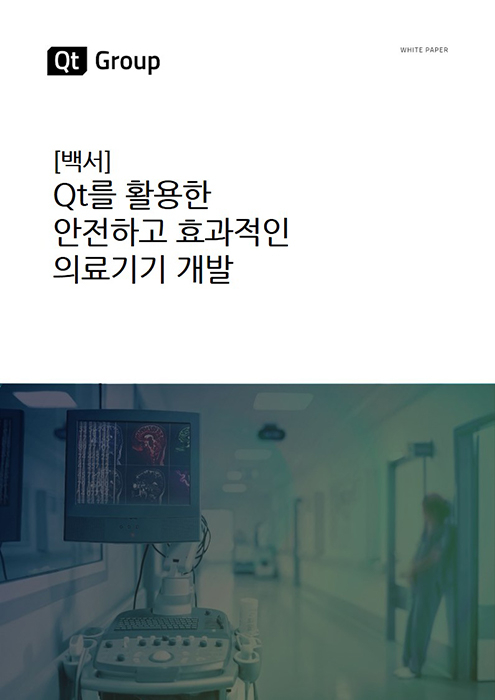Qt Group_White paper on development of safe and effective medical devices using Qt (provided by: Qt Group)
Qt Group, a global application and device interface development company, announced today that it has published a white paper titled ‘Development of safe and effective medical devices using Qt’.
With cyber threats on the rise, hackers are finding a variety of ways to make money, including encrypting systems and demanding ransom or selling stolen electronic protected health information (ePHI).
The medical field is more vulnerable to these threats because it has neglected security investments compared to other industries. Financial giants such as Goldman Sachs and Barclays are preparing for ransomware attacks through large-scale security investments, but the medical industry is still considered to be 15 to 20 years behind in security.
The white paper ‘Developing safe and effective medical devices using Qt’ examines system security issues facing the healthcare industry, Qt’s core security features for safe software development, solutions specialized for the medical device industry, and Qt’s medical industry regulatory requirements. It deals with support methods. It also contains the story of Qt Group, which is contributing to the development of the medical industry by actively participating in various professional organizations and medical device working groups.
Qt Group emphasized the importance of early detection and prevention of problems as the key to safe and successful software development. Architectural verification ensures that software designs can withstand attacks by adhering to security principles such as least privilege, while static code analysis can detect vulnerabilities such as buffer overflows and SQL injections without executing the program. Code coverage helps ensure that the entire code is verified during testing performed as part of quality assurance (QA) to identify potential security flaws early.
Additionally, the design, development and testing framework for creating UI software simplifies medical device development by providing a comprehensive set of intuitive design and development tools, libraries and APIs. Because it is 100% cross-platform, all elements needed to build a safe, effective user experience (UX) can be implemented with the Qt toolchain, regardless of operating system or hardware.
Qt Group is making great efforts to comply with various regulations and standards to support safe software development. Qt Safe Renderer, which supports rich graphical UI, has obtained IEC 62304 and IEC 61508 certification, and software verification tools Squish and Coco comply with IEC 62304 and ISO 13485. Additionally, Axivion static code analysis has been certified as suitable for safety-related software development according to IEC 62304 up to Class C and IEC 61508 up to SIL 4.
Kim Jong-chil, Qt Group Director (Senior Sales Manager, Medical Industry), said, “Medical device manufacturers must continuously conduct inspections not only during the development stage but also after product launch through the Software Bill of Materials (SBOM), which is one of the important areas in medical security.” “It is important to select the right QA tool to develop software that takes patient safety into consideration,” he said.
Reporter Lim Min-ji [email protected]


